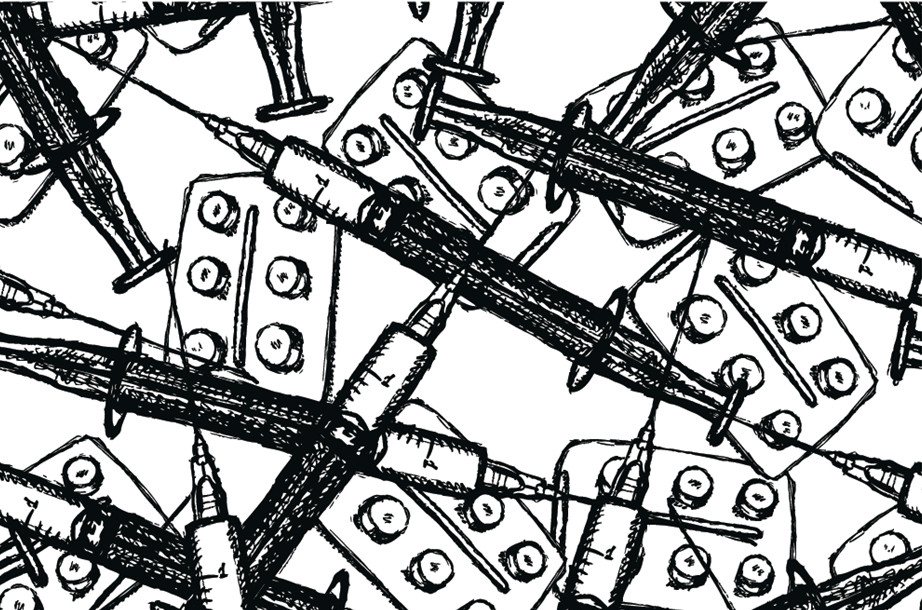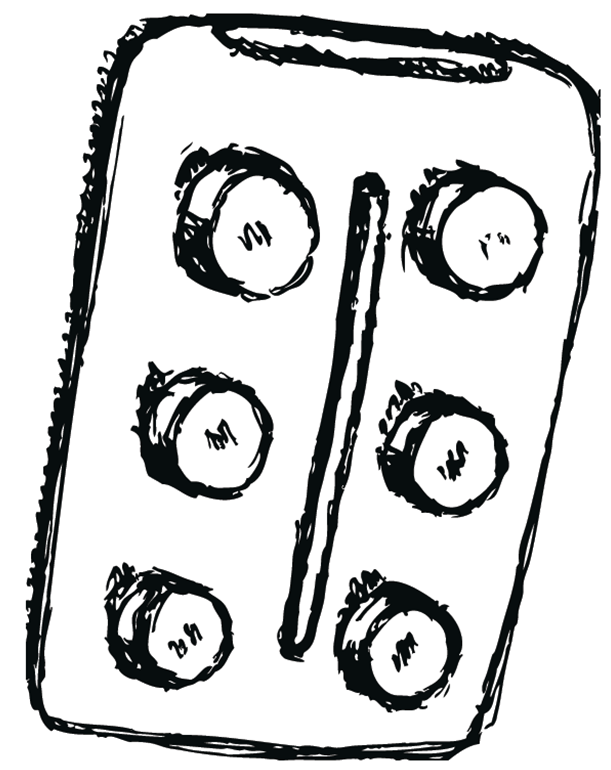Why pharmacy support for drug misuse is key
In Insight
Follow this topic
Bookmark
Record learning outcomes
The misuse of illegal drugs is widespread in the UK, and although the number of people with serious problems is relatively small, the impact that it has on their lives can be devastating. So, how can community pharmacy help?

Back in February, Public Health England (PHE) announced the successful applicants for £10 million of capital funding for services helping people in England with drug or alcohol problems, recover from their addiction. Over 50 projects across England, in partnership with local authorities, will receive grants from PHE, but none of these was community pharmacy based. PHE did not disclose whether pharmacy projects had applied and simply not made the cut, or if none had applied, but it does raise the question of whether pharmacy is getting involved enough when it comes to offering services to users of illegal drugs €“ with numbers on the rise.
Findings from the 2013/14 Crime Survey for England and Wales showed that around one in 11 (8.8 per cent) adults aged 16 to 59 had taken an illicit drug in the past year, a rise from the 2012/13 level of 8.1 per cent, and the government's drug strategy 2010 reported drug use costs the UK economy £15.4 billion a year.
The pharmacy view
 People whose drug use has become an addiction can commit crime, such as theft, burglary and robbery, which enables them to keep up with the cost of their drug use. Because problem drug use does not happen in a vacuum, it often goes hand in hand with other factors such as mental health, alcohol misuse, prostitution and homelessness €“ all signs that pharmacy could pick up on.
People whose drug use has become an addiction can commit crime, such as theft, burglary and robbery, which enables them to keep up with the cost of their drug use. Because problem drug use does not happen in a vacuum, it often goes hand in hand with other factors such as mental health, alcohol misuse, prostitution and homelessness €“ all signs that pharmacy could pick up on.
'Often pharmacies see addicts more than any other service once they are in treatment, so they are able to get to the most vulnerable people when and where they need it,' says a PHE spokeswoman. 'In terms of the interface with the health and social care environment, community pharmacy also has links that can signpost people, according to where they are on their recovery journey, to local support groups and drug services right where they live, when they are seeking help. A lot of pharmacies already do this but ideally we would like to see an increasing number.'
Because of their extended opening hours and their setting within close-knit communities, pharmacies are more accessible than other healthcare services, and when it comes to the usual demographic of illegal drug users then that setting is crucial €“ it's accessible outside normal hours, there's the confidentiality element, and patients can go in without an appointment and without having to register.
'That could be the difference with someone engaging with healthcare systems trying to get help, and someone putting it off because they don't want to give their details,' she adds. From April 2013, the commissioning of substance misuse treatment services for drugs and alcohol misuse was transferred to local authorities, supported by health and wellbeing boards €“ following the Health and Social Care Act 2012 €“ and in May 2014 NICE published its recommendations on tackling drug use, which it says those with responsibility for commissioning, managing or providing services are 'advised to read' in order to 'make the best and most efficient use of resources to improve the health and wellbeing of people living in your area'.
 Pharmacists who want strategic input into substance misuse services can be involved in the tendering process, according to Gary Choo, Numark's head of information services. 'Because these services are now commissioned by local authorities, commissioners want to see innovative approaches in the bidding process. Community pharmacy can play a strategic role in supporting a user as a point of access to treatment, as well as monitoring and referrals as users visit their chosen pharmacy every day,' he says.
Pharmacists who want strategic input into substance misuse services can be involved in the tendering process, according to Gary Choo, Numark's head of information services. 'Because these services are now commissioned by local authorities, commissioners want to see innovative approaches in the bidding process. Community pharmacy can play a strategic role in supporting a user as a point of access to treatment, as well as monitoring and referrals as users visit their chosen pharmacy every day,' he says.
Services such as supervised administration and needle and syringe exchange programmes are already well established at the local level, with PSNC's Services Database holding records for 82 and 79 locally commissioned services across England respectively. As pharmacy extends its role, some local commissioners have incorporated extra dimensions that can improve outcomes for patients. 'For example, Hampshire's needle and syringe programme has varying service levels, one of which includes providing mini health checks and dry blood spot testing to identify blood-borne diseases such as HIV, hepatitis B and C,' says PSNC director of NHS services, Alastair Buxton.
'Other examples are East Sussex County Council's inclusion of an alcohol breath test in its supervised administration service, which can further assist in increasing the chances of a successful outcome from the patient's treatment, and a focus on certain types of drug user as seen in Staffordshire's needle and syringe programme where there is an aim to pick up any drug users who may have left rehabilitation services or anyone who is particularly susceptible to drug use such as the homeless.'
However, Mr Buxton warns that the recently announced £200 million reduction in funding for local government public health services is likely to have 'an adverse impact' on drug services such as these, alongside other locally commissioned health services.
So, why get involved?
Sultan 'Sid' Dajani is the owner of Wainwrights Chemists in Bishopstoke and treasurer of the RPS. His pharmacy has been offering substance misuse services since 2000 €“ which includes a needle exchange; supervised methadone consumption; and blood screening for blood-borne viruses (BBV) €“ and he is a vocal advocate for what he sees as 'the many benefits' of offering drug misuse services.
'Obviously we get paid and this compensates for the higher overheads and training costs of staff that come with this kind of work, but I do this kind of work because it's extremely rewarding. In addition, local users tend to protect and respect our pharmacy more than others, because we are helping them, and so we are less likely to be targeted for burglary or theft.' His pharmacy has been offering these services in some way or another for the past 20 years and currently has about 35 patients on its books.
It also offers a mini health check which looks at diet; sexual activity; dental hygiene; symptoms of ulcers, pain or neuropathy; bacterial or fungal infections; wounds that aren't healing; smoking and alcohol consumption; and gives addicts advice about how to deal with issues, as well as signposting to other services such as a case worker, GP or A&E, or the GUM clinic. If patients are prostitutes then they can also have chlamydia screening, the results of which can be sent to them by email, post, text or they can come into the pharmacy for them.
'Helping people at their most vulnerable is the most satisfying thing that I do as a pharmacist, and I think community pharmacies could do more of this,' says Mr Dajani. 'I appreciate that BBV testing might not be everybody's cup of tea because it involves taking more blood than glucose monitoring, but mini health checks, dental checks, a needle exchange and supervised methadone could all be offered without too much trouble.' He recommends writing SOPs and being prepared for any mishaps €“ like syringes brought back not in bins €“ as well as the need to be clear with the patient what the ground rules are when it comes to their conduct in your pharmacy.
'We always start by explaining that we have zero tolerance towards theft and towards violence to patients and staff, and that we will stop their access to our services if they breach these terms. We also tell them what to do if they can't make it in for any reason, or if they have any other problems with accessing our services.' And while he appreciates that some people might say addictions are self-inflicted, he says:
'These people are still patients at the end of the day and should not be treated any differently from smokers, alcoholics, or obese people who need help. They tend to need a lot of support and we're stopping them using drugs on the street, reducing crime, reducing hospital admissions by minimising infections from sharing of needles, making sure they have regular access to their medication, and giving them clean medicines as opposed to dirty €“ all of which have public health benefits.
Most of them are very charming and very grateful, and although you know they will never come off drugs, what we are trying to do is keep them as safe as possible while they are using, so anything we can do to add to these services we will endeavour to discover and chase to provide.'
As the NHS and social care move towards integrated care, now is the time for pharmacy to forge these kinds of links in their communities, and with other providers, to ensure they are part of the whole healthcare team.
Information on substance use
CPPE offers a Substance Use and Misuse Programme aimed at helping pharmacists and pharmacy technicians to increase their knowledge in the area of substance use and misuse so that they can provide enhanced services to drug misusers and work effectively as part of the multidisciplinary team. The programme looks at current evidence-based guidelines around harm reduction, as well as the revised pharmacological and nonpharmacological treatment of substance misusers.
It is a blend of open learning and electronic resources and covers the treatment of substance misuse, harm reduction, needle and syringe exchange, and legislation and provides an overview of commonly misused substances. ô€€€
- You can find out more at cppe.ac.uk/programmes/l/substance-d-02
